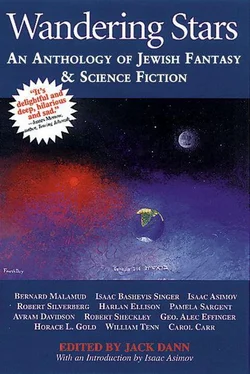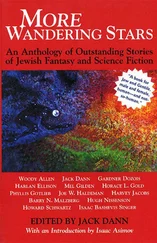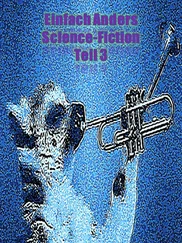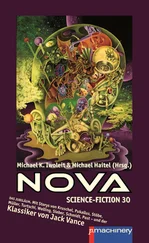The next day, however, I received a phone call from a stranger, who said he was Jewish, and who demanded to know why I had consented to talk on Rosh Hashanah. I explained, politely, that I didn’t keep the holidays and that seemed to infuriate him. At once, he flung himself into a self-righteous lecture in which he descanted on my duties as a Jew, and ended by accusing me of trying to conceal my Jewishness.
Breathing a short prayer to the God of Aristotle, of Newton and of Einstein, I said, quite calmly, “You have the advantage of me, sir. You know my name. I don’t know yours. To whom am I speaking?”
And the Lord God of Science proved to be on the job, for the man on the phone answered, “My name is Jackson Davenport.”
I said, “Really? Well, my name, as you know, is Isaac Asimov, and if I were trying to conceal my Jewishness, the very first move I would make would be to change my name to Jackson Davenport.”
Somehow that ended the conversation.
But to Jackson Davenport (not his real name, remember), wherever he is, I have this further word: The reason I am writing this introduction is that, despite all my infidel ways and beliefs, I am Jewish enough.
WILLIAM TENN
On Venus, Have We Got a Rabbi
What is a Jew? Is “Jewishness” a mystical experience, a system of laws, a sense of kinship, a religion, or a myth? Is there a Jewish ethic, a Jewish character, a Jewish mystique? If the Jew can be identified, can he be as easily defined—or is he, as Franz Rosenzweig claimed, an indefinable essence?
There is a story from the Talmud that suggests the character of the Jew and the “essence” of his religion. A proselyte came to the great sage Hillel and said, “Teach me the whole Torah while I stand on one foot.” Without losing his temper Hillel replied, “What is hateful to you, do not do to others. This is the whole Torah, the rest is commentary. Go and study it.” As Hayim Donin says, “It is, however, still essential to ‘go and study’ the rest.”
In William Tenn’s story of the future, the Jews are still studying, still suffering, making jokes, myth, religion, and still being Jewish. If that “indefinable essence” cannot be defined, it can certainly be described. Can a creature that looks like a pillow growing a short gray tentacle be a Jew? To answer that question Tenn keeps asking, What is a Jew?
Mark Twain has written, “If the statistics are right, the Jews constitute but one percent of the human race. It suggests a nebulous dim puff of star dust lost in the blaze of the Milky Way. Properly the Jew ought hardly to be heard of; but he is heard of, has always been heard of…. He has made a marvelous fight in this world, in all the ages; and he has done it with his hands tied behind him.”
On Tenn’s Venus the Jews are still fighting with their hands tied. In the best tradition of Twain and, of course, Sholom Aleichem, Milchik, the TV repairman who speaks for all the Jews in the universe and the entire human race, tells his story.
—J. D.
EDITOR’S NOTE: This is an original story written expressly for this volume and cause for celebration, since it is the first story that William Tenn has written in seven years. That is a long time to keep your readers waiting. The editor hopes this is the beginning of a William Tenn renaissance. Welcome home.
*
SO YOU’RE LOOKING AT ME, Mr. Big-Shot Journalist, as if you’re surprised to see a little, gray-haired, gray-bearded man. He meets you at the spaceport and he’s driving a piece of machinery that on Earth you wouldn’t even give to a dog’s grandmother, she should take it with her to the cemetery and be buried in it. This is the man—you’re saying to yourself—this nobody, this piece of nothing, who’s supposed to tell you about the biggest, strangest development in Judaism since Johannan Ben Zakkai sat down with the Sanhedrin in Jabne and said, “The meeting will please come to order.”
Are you talking to the wrong man, you want to know? Did you come across space, fifty, sixty, I don’t know, maybe seventy million miles just to see a schlemiel in a cracked helmet with a second hand oxygen canister on his back? The answer is this: you are not talking to the wrong man. Poor as he is, shabby as he is, unlucky as he is, you are talking to the one man who can tell you all you want to know about those trouble-makers from the fourth planet of the star Rigel. You are talking to Milchik, the TV repairman. Himself. In person.
All we do is put your belongings in the back of the module and then we get in the front. You have to slam the door—a little harder, please—and then, if this is still working and that is still working, and the poor old module feels like making another trip, we’ll be off. Luxury it definitely is not, a spaceport limousine you certainly could not call it, but—module, shmodule—it gets you there.
You like dust storms? That’s a dust storm. If you don’t like dust storms, you shouldn’t come to Venus. It’s all we got in the way of scenery. The beach at Tel Aviv we don’t got. Grossinger’s, from ancient times in the Catskills, we don’t got. Dust storms we got.
But you’re saying to yourself, I didn’t come for dust storms, I didn’t come for conversation. I came to find out what happened to the Jews of the galaxy when they all gathered on Venus. Why should this schmendrik, this Milchik the TV man, have anything special to tell me about such a big event? Is he a special wise man, is he a scholar, is he a prophet among his people?
So I’ll tell you. No, I’m not a wise man, I’m not a scholar, I’m certainly not a prophet. A living I barely make, going from level to level in the Darjeeling Burrow with a tool box on my back, repairing the cheapest kind of closed-circuit sets. A scholar I’m not, but a human being I am. And that’s the first thing you ought to know. Listen, I say to Sylvia, my wife, don’t our Sages say that he who murders one man murders the entire human race? So doesn’t it follow then that he who listens to one man listens to the whole human race? And that he who listens to one Jew on Venus is listening to all the Jews on Venus, all the Jews in the universe, even, from one end to the other.
But Sylvia—go talk to a woman!—says, “Enough already with your Sages! We have three sons to marry. Who’s going to pay for their brides’ transportation to Venus? You think for nothing a nice Jewish girl will come here, from another planetary system maybe—she’ll come to this gehenna of a planet and go live in a hole in the ground, she’ll raise children, they won’t see the sun, they won’t see the stars, they’ll only see plastic walls and elevators and drunken cadmium miners coming in to spend their pay and have a goyische good time. You think just because a girl likes the stereo transcript of one of our sons and is willing to come here and marry him, we don’t have to pay her fare and maybe something a little extra she should enjoy herself on the way? Where do the Sages say the money comes from? Do they say maybe we should nail up a new collection box in the shul: ‘Help the Milchik boys find brides—their father is too busy with philosophy’?”
I don’t have to remind you—you’re a journalist, you’re an educated man—what Solomon says in Proverbs about women: a good one, he says, has got to cost you a lot more in the end than pearls. And still, someone in the family has to think about money and the boys getting brides. That’s the second point. The first point is that I’m a human being and a Jew, two different things maybe, and I’ve got the right to speak for all human beings and for all Jews.
On top of that, I’m a Jewish father with three full-grown sons here on Venus, and if you want to do an injury to your worst enemy, you say to him, “Listen. You’re Jewish? You got three sons? Go to Venus.”
Читать дальше












